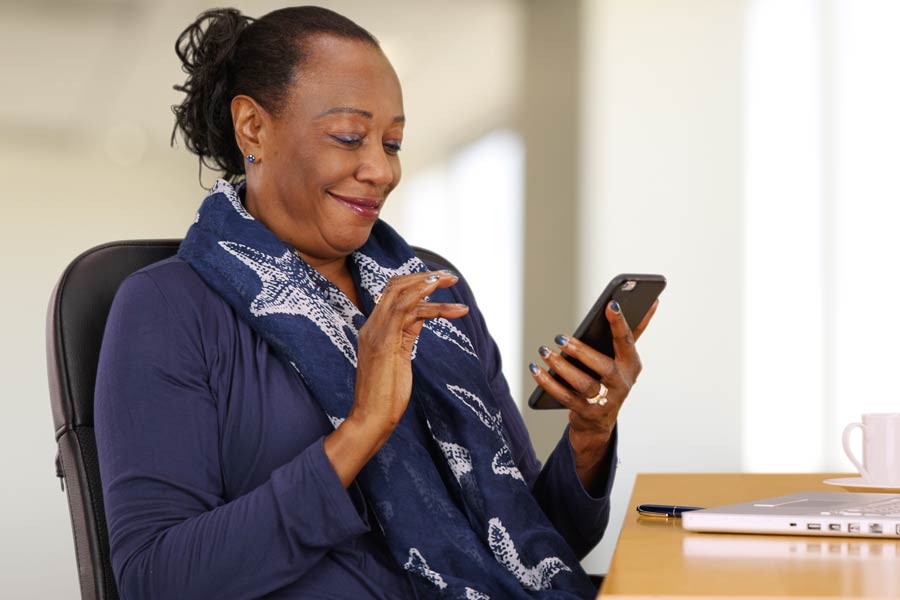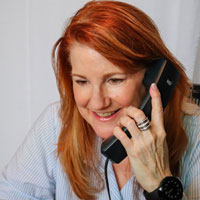
Dec 20, 2019
Family Caregiving: How Siblings Stay Connected Using Remote Monitoring Technology
Rosalba, her brother Kino and the rest of their siblings grew up in Houston. People in Texas know a few things about Houston: it is massive, containing an interstate ring 38 miles long developed 60 years ago; an inner (previously outer) ring 88 miles long, and a third 180-mile loop is in the works. It has the widest freeway in the world – the Katy Freeway is at its widest is 26 lanes across. Houston is very hot in the summer, as is most of Texas, but Houston is also very humid, being right on the Gulf of Mexico. And all these factors are significant when we learn about Kino and Rosalba and their caregiving relationship.
Rosalba lives in Dallas, 240 miles away from her brother and is now his primary caregiver, despite the distance. Kino lives in Houston with his mother, who has dementia. Kino has Alzheimer’s disease and other medical conditions which require ongoing treatment and medication. But none of this prevents Kino from walking, and he loves to take walks in his neighborhood. Early in 2019, he began getting lost sometimes on his walks. In February 2019 everything escalated as Kino was lost – for a week! Obviously, this was extremely dangerous for him, and very frightening for him and his family. The police were contacted for help with search and rescue efforts*. After a week spent searching all over for Kino, a police officer finally spotted him, drenched from the rain. He was 9 miles away from home in downtown Houston.
After he was released by the hospital, Rosalba and the family were faced with making a major, potentially life-changing decision. Should they find a nursing home for Kino, or could he come back home? They tried to locate a place to live where he would be secure but would still allow him some outside time that he loves so much, somewhere he could go for a walk. Medicaid informed them that there were not many places available to him, and none of the places they looked at provided the freedom the family was looking for where he could, as his sister said, “go outside and sit in the sun”. The decision was made: Kino was going back home and his family knew they would need some sort of GPS tracker which would allow them to know where he was located, while still promoting his walking activity and provide him some independence. His nieces searched the internet, found an insole product that they tried and said performed “okay”, but it was difficult to charge, and it would need to be placed in whatever pair of shoes he was wearing that day. The family contacted an Alzheimer’s support line and website and were told to contact Theora Care for its remote monitoring solutions.
Creating a connected family
As primary caregiver, Rosalba purchased the affordable and easy-to-use Theora Connect wearable for Kino. Its stylish wristwatch design means it is non-stigmatizing for him to wear, unlike traditional lanyards and medical-looking devices. The easy to locate SOS button puts Kino in touch with Rosalba at any time to check in or let her know if he needs help. Rosalba and her sister both downloaded the free Theora Link smartphone app, which tracks the Theora Connect wearable. In addition to its GPS location tracking, his sisters have set up Safe Zones so that if Kino should exit a safe area, they are notified via the app. They can even review historical information to identify any changes in their brother’s routine which may signal a need for intervention. Additionally, Rosalba has two-way cellular communication with her brother using Quik Connect. This feature is especially important to the family, as Rosalba can speak directly to Kino via her smartphone app and his wearable. Should her brother get lost or confused, Rosalba can initiate a call to Kino on his Theora Connect, so even without pushing a button, he can hear her reassuring voice and know that help is on the way if he needs it. As Rosalba says, “It gives us security knowing if he gone for too long, I can contact him via the talk feature. I am the only one in the family who watches him consistently throughout the day. If I am busy at work, and he has been gone too long my siblings contact me via text to find him and I call and remind him to go home. But if he goes too far away, out of a pre-set Safe Zone, I will get a notification on my phone to check in.”
Another scary situation, alleviated with helpful technology
One Saturday in the summer, Rosalba was in a meeting so couldn’t keep as close a watch via the smartphone app as she normally does. She received a phone call from her sister in Houston. It was very hot, and Kino had been gone too long. Her sister had gone to look for him but couldn’t find him. Then, a good samaritan called their mother and said that they had seen Kino, on the side of the road almost passed out from heat exhaustion and dehydration. In the summer, it’s not unusual to be close to 100°F with 90% humidity in Houston. Rosalba immediately checked her phone app – even though he was not in one of his pre-set Safe Zones they could see immediately on the smartphone app where her brother was located. They used the Quik Connect feature to let him know they were coming immediately. If he had not been wearing the Theora Connect wearable they would not have known where he was, or have been able to contact him. Thankfully they were able to resolve the situation quickly.
More peace of mind and independence
“It is a team effort for sure to care for him. We plan on providing him his freedom and enjoyment of walking around as long as we can. These days, he sometimes forgets how to get home, or he forgets he has been gone for too long. Some days he comes back bent over in pain from walking too long. Throughout the year we have had several moments where we would not have located him if not for your product,” said Rosalba. “My sister and I have the app loaded. Safe Zones are set up to track our brother so we receive a notification when he leaves a certain area, and we can set up new areas as we need to.”
Kino likes the Quik Connect 2-way communication, because he feels reassured hearing Rosalba’s familiar voice. The tracking and historical information provided by the Theora Care solution has been instrumental in finding him several times. And his sister let us know that she appreciates the great support she has received from the Theora Care Team.
Thank you, Rosalba, for sharing your family’s story. We are caregivers, too, and it means a lot to us when we are able to help other caregivers.
A final note
Don’t wait until it’s too late. In the early stages of Alzheimer’s the protocol is to keep people out and about and active. Over 60% of people with Alzheimer’s wander, but that doesn’t mean they can’t remain in their home of choice, actively independent using remote monitoring technology. Across Houston, across Texas and even nationally, people are using affordable, easy to use Theora Care solutions to stay connected with their family members.
*According to Alzheimer’s Foundation of America, search and rescue can cost $1,500/hr., with an average search costing $13,500.

